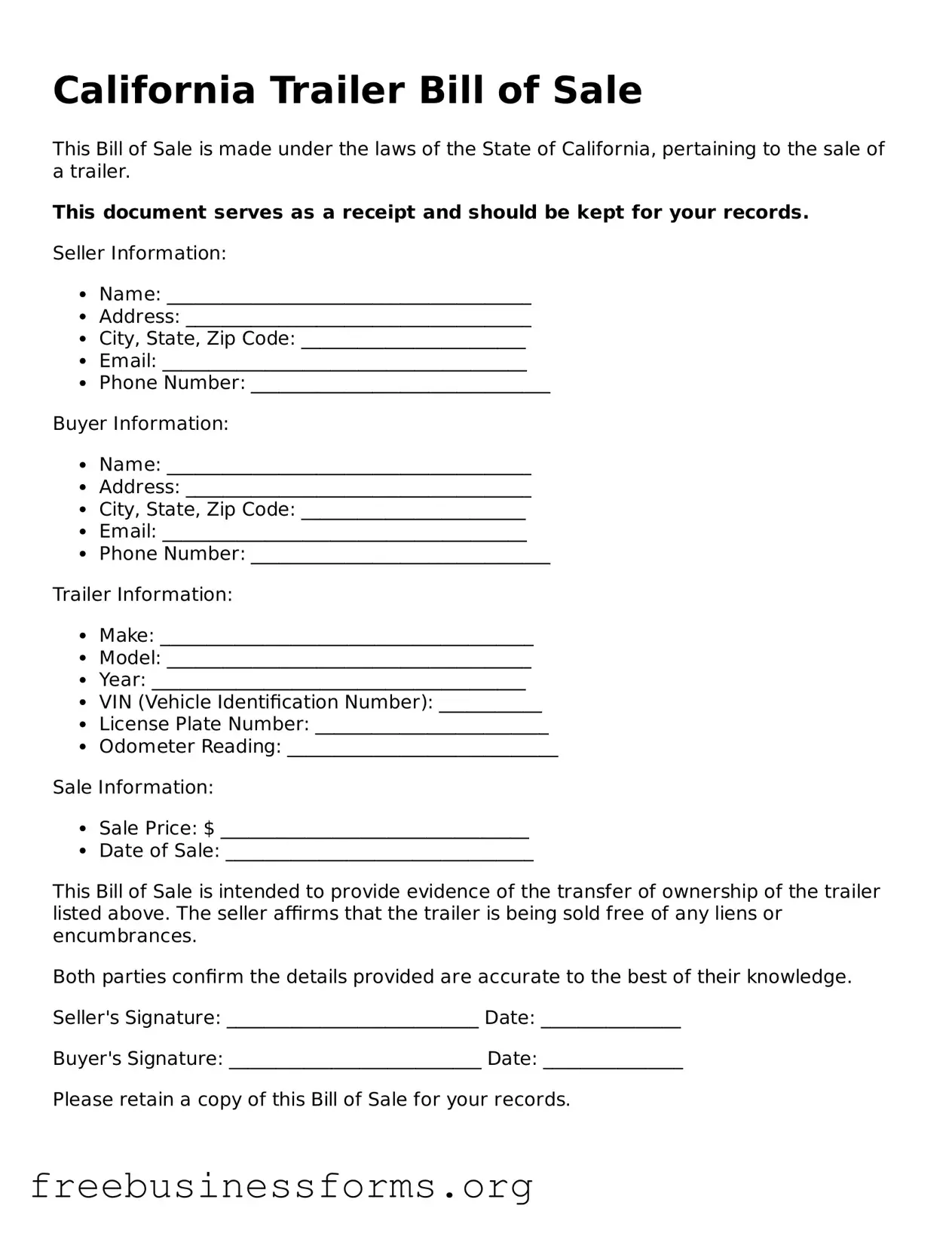Blank Trailer Bill of Sale Template for California
The California Trailer Bill of Sale is a legal document used to transfer ownership of a trailer from one party to another. This form serves as proof of the transaction and includes essential details such as the buyer's and seller's information, trailer specifications, and the sale price. Understanding how to properly complete this form is crucial for both buyers and sellers to ensure a smooth transfer of ownership.
Open Form Here

Blank Trailer Bill of Sale Template for California
Open Form Here

Open Form Here
or
↓ PDF File
Quickly complete this form online
Complete your Trailer Bill of Sale online quickly — edit, save, download.